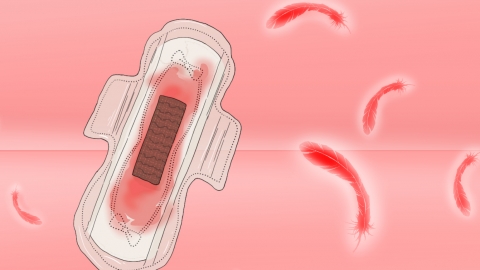Is it normal to have dark brown discharge during the last two days of the menstrual period?
Generally, whether it is normal to have dark brown discharge during the last two days of the menstrual period depends on specific circumstances and accompanying symptoms. If there are abnormal discomforts, it is recommended to seek medical advice promptly. The detailed analysis is as follows:

If the amount of dark brown discharge in the last two days of menstruation is small, lasts for a short duration, and there are no obvious symptoms such as odor, itching, or abdominal pain, this condition is usually normal. It primarily occurs because menstrual flow decreases in the later stages of the period, causing blood to remain in the uterine cavity or vagina for a longer time. As hemoglobin oxidizes, the color darkens, forming dark brown discharge—an ordinary physiological phenomenon at the end of menstruation that does not require excessive concern.
However, if the dark brown discharge is heavy, lasts longer than three days, or is accompanied by noticeable odor, vulvar itching, lower abdominal heaviness or pain, or if similar discharge occasionally appears outside the menstrual period, this situation is considered abnormal. It may be related to gynecological inflammation, endometrial polyps, hormonal imbalances, or other issues. Timely evaluation is necessary to identify the underlying cause and prevent delays in addressing potential health problems.
In daily life, maintain good external genital hygiene by washing with warm water, changing cotton underwear frequently, and wearing breathable, comfortable clothing. Avoid tub baths and swimming during menstruation to reduce the risk of infection. Maintain a light and nutritious diet, avoid raw, cold, spicy, or irritating foods, and drink plenty of warm water to promote metabolism. Ensure adequate rest, avoid strenuous exercise and overexertion, and maintain regular sleep patterns to support hormonal balance. Seek timely medical consultation and cooperate with examinations if any abnormalities occur.




